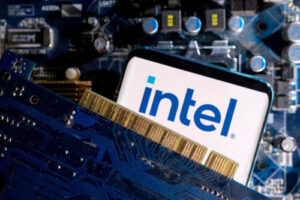(Reuters) – Alphabet’s Google is preparing to partner with Taiwan’s MediaTek on the next version of its AI chips, Tensor Processing Units, that will be made next year, the Information reported on Monday, citing people involved in the project.
However, Google has not cut ties with Broadcom, the chip designer it has worked with exclusively on the AI chips over the past several years, the report said, citing an employee at the San Jose-based company.
Google, MediaTek and Broadcom did not immediately respond to Reuters’ requests for comment.
Like Nvidia,. Google also designs its own AI server chips, which it uses for internal research and development and also rents out to cloud customers.
This approach gives Google a competitive edge in the AI race by reducing its reliance on Nvidia, even as rivals like Microsoft-backed OpenAI and Meta Platforms have seen a surge in demand for Nvidia chips.
Late last year, Google rolled out its sixth-generation TPU in a bid to give itself and its Cloud customers an alternative to Nvidia’s chips, which are the most sought-after processors in the industry.
Google chose MediaTek partly because the Taiwanese firm has a strong relationship with TSMC and charges Google less per chip compared to Broadcom, the Information report added.
Google spent between $6 billion and $9 billion on TPUs last year, according to research firm Omdia, based on Broadcom’s target for AI semiconductor revenue last year.
(Reporting by Akash Sriram and Deborah Sophia in Bengaluru; Editing by Maju Samuel)




